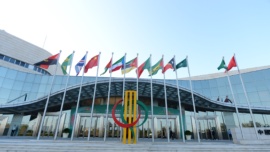Non-resident inhabitants of Macau, aka blue-card holders, will likely have to pay more to use public transportation in the city.
The proposal to increase bus fares, announced by the government over a week ago, is slowly unpacking discontent.
Positive or reverse discrimination is a concept which usually describes policies created to enable some advantages for people and groups of people who are usually perceived to enjoy fewer rights or to be somewhat unfairly treated in a given society. Those can include ethnic minorities, people with disabilities, women.
It is slightly different from the way the Secretary for Transport and Public Works Raimundo do Rosário employed the term last weekend to defend the proposal, for it is not being framed as a way to benefit those allegedly more in need, but those allegedly living in less disadvantageous conditions.
The only positive aspect to it is, thus, wishful thinking, and that hardly works in policy development.
In truth, bus fares in Macau are not expensive in absolute terms, although they may be relatively more expensive or cheaper depending on the distance travelled. It is also common around the world that costs for public transport be subsidized. But in big cities and metropolises, they are usually not cheap and customers are paying their fare, so to speak.
But here, Mr. Rosário explained the proposal is not based on economic intelligence.
So, it is a political decision.
Although its bottom line always reverts to privileging and protecting ‘locals,’ the reasons as to why the increase in bus prices will be higher for non-resident workers did not come out clear enough.
One thing is certain though. By so doing, the government is creating a political problem where there might not be one.
While defining policies that discriminate against the foreign labour force, it is levelling the way of social integration – which barely exists, truth be told – into more troubled waters.
Integration does not mean that everybody will enjoy equal rights, or that there will not be resistance from different sectors of society. But enacting arbitrary discrimination is not laying the grounds on a good note.
It is high time we recognize societies are not pure, bounded, impenetrable cultural entities. Macau is a diverse place. And mind you, that does not need be a problem.























